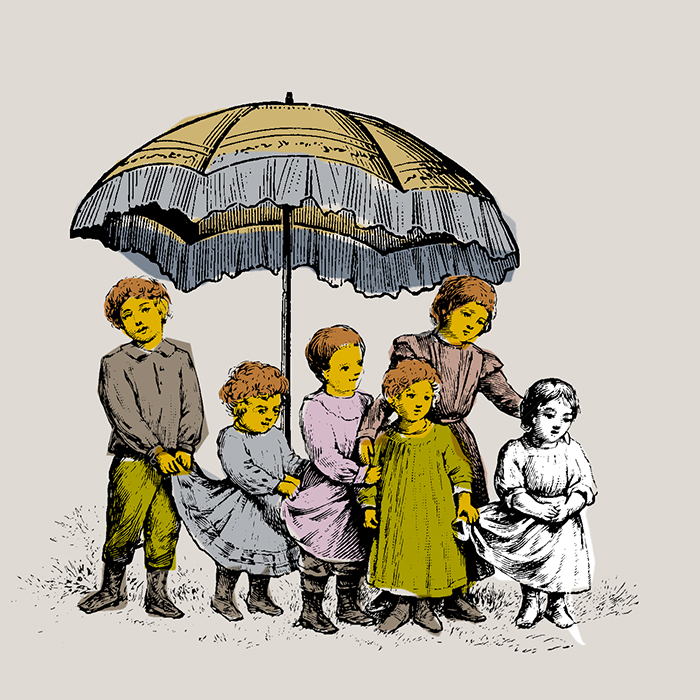
The adolescent phase consists of some universal phenomena, such as biological changes. However, different cultural norms and contexts shape young people’s lives during adolescence and emerging adulthood. For example, unaccompanied young people often come from a large family culture, meaning that the family significantly influences decision-making. In many (northern) European countries, however, adolescents are asked to make decisions, shape their own lives independently and make choices aimed at their individual development. This contrast creates an extra burden for migrant young people. Unaccompanied young people have to shape their lives again in a strange, new country with a different culture and language, and without the presence of their parents, family and other loved ones. They also have to do this during a critical developmental phase.
Contrary to popular belief, in many cases, at least one of the parents of unaccompanied young people is still alive. If unaccompanied young people have contact with their families, they usually experience a high degree of support. High expectations from family motivate young people to build their (new) lives. However, if things go against them in their new country, this can also be experienced as a burden.
For example, the expectation is often that the unaccompanied young person will become prosperous, support the family financially, and achieve family reunification. The family has usually incurred large debts to pay for the youngster’s flight and often has to repay this under pressure. Implicit and explicit orders from family can have a significant influence. Failure to comply with these instructions can lead to grief, guilt, shame, anger or psychological problems for the young person.
The first period of their stay in the host country is crucial for unaccompanied young people’s well-being and integration. Going to school is an important developmental task in this regard. Through education, unaccompanied young people may experience everyday life again and work on their aspirations and prospects. The daily routine, a sense of purpose and direction in life, and contact with peers increase self-confidence and well-being. A sense of belonging and safety at school decreases the risk for post-traumatic symptoms such as depression and anxiety.
Unaccompanied young people have often lost several years of education due to war conditions and time spent in refugee camps and transit countries. There are many signals from schools that unaccompanied young people, more often than young people with parents, are absent from school. The absence of parental support and motivation probably plays a role in this. Unaccompanied young people’s concerns about family and their application for family reunification may also play a role. Their starting position in education, like that of other young people of secondary school age that have fled their countries of origin, is not favourable. Sometimes they are illiterate. Much more often, they are “differently literate”, that is, in a non-Latin alphabet.
Regarding education, social and cultural differences also play a role. Some unaccompanied young people come from cultures that value respect and patience highly. Conversely, some (northern) European countries may attach more value to assertiveness. For instance, in many countries of origin, students do not question their teachers, which is considered rude in their culture. This differs from most (northern) European countries, where discussions with teachers are encouraged.
Young people who are separated from their families often experience uncertainty about their future. They may also have experienced traumatic events. Upon arrival, unaccompanied young people may be distrustful. That distrust was functional along their journey because they were at risk of deception, theft, rape, and extreme violence. Gaining trust, in part, for this reason, is essential. Many unaccompanied young people have high expectations for their future upon arrival. Having success contributes to the honour and well-being of the family. Failure to comply with these expectations can lead to additional stress, grief, guilt, shame, anger, or psychological problems. A lack of future perspectives, residence permits, or adequate support structures in the new country can also produce these feelings.
Additionally, unaccompanied young people often feel that they cannot help their family members enough, leading to feelings of powerlessness. They have a higher risk of mental health problems in reception countries than other refugees and children with a migrant background. Even years after receiving a residence permit, they struggle with mental health problems. These often include complaints such as depression and anxiety. Most of this group needs psychological help, while a small part receives it.
If psychological problems seriously interfere with daily functioning, referral to the mental health system may be necessary. Yet this often does not work out well. This may have to do with unfamiliarity with mental health services, taboos surrounding mental health problems, and fear of stigma also playing a role. Mental health services are also underused among adult refugees because the care offered does not always connect well. In addition, there are also studies showing the lack of adequate assistance once young people contact the mental health system (discrimination, stigma etc.)
Despite the problems and challenges mentioned above, it is important to realise that unaccompanied young people are youthful and resilient, and their physical health is usually relatively good. Factors that positively affect (mental) health are: being able to pick up everyday life as quickly as possible with a perspective on work, education or other forms of participation, having sufficient social support and networks, clarity about residence, and proximity to close relatives. Coping mechanisms often utilised include interaction with and support from peers and interaction with their religious institution. It works best when strengthening social support and increasing resilience are combined with offering adequate trauma-sensitive care (when needed). Continuity of (mental) health care (if required) and education strengthens this resilience. According to many researchers, connecting one’s own and new culture, “integration,” is the most successful strategy.

The BRIGHTER FUTURE project has been funded with support from the European Commission. This publication reflects the views only of the authors, and the Commission cannot be held responsible for any use which may be made of the information contained therein.
